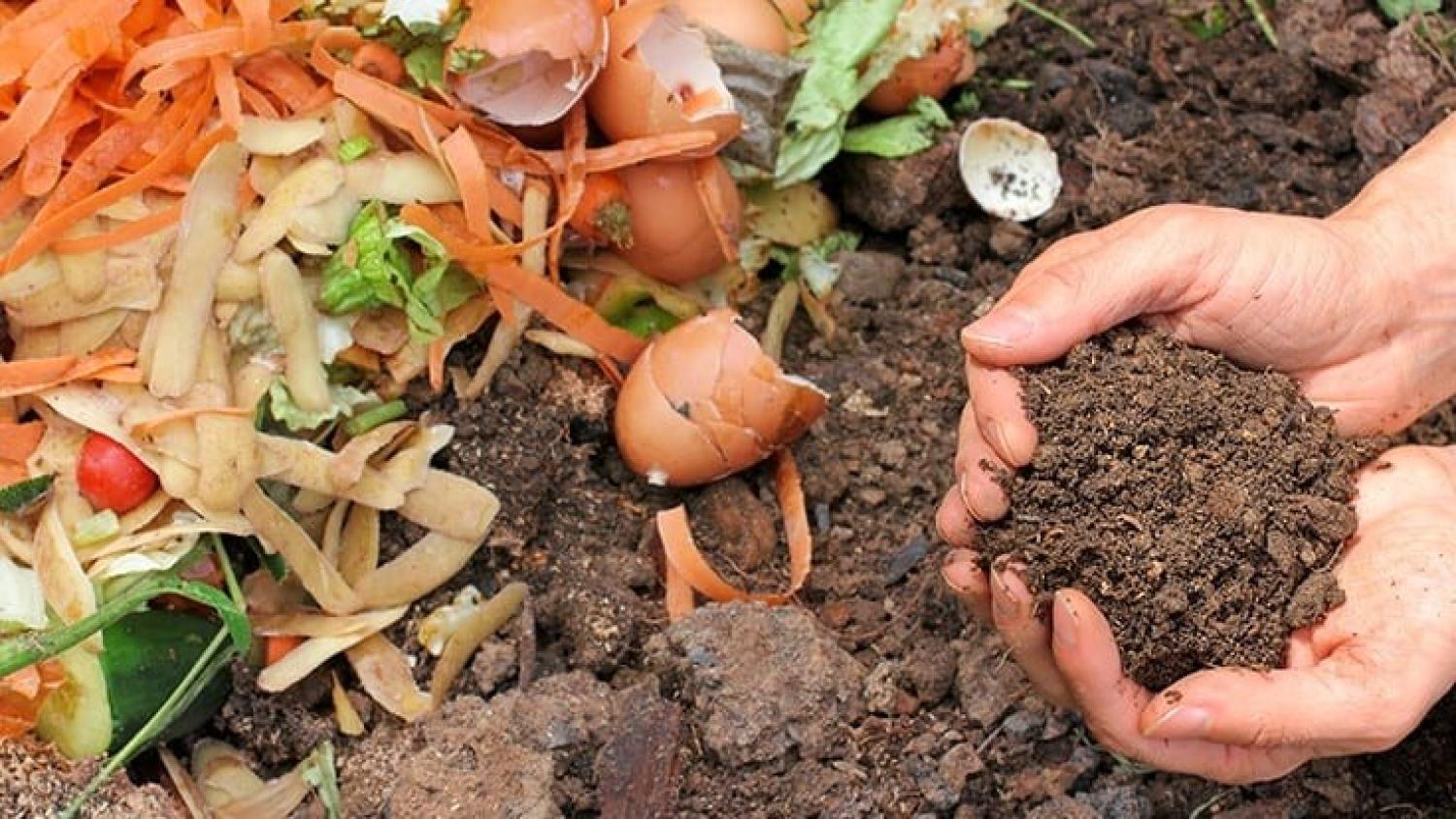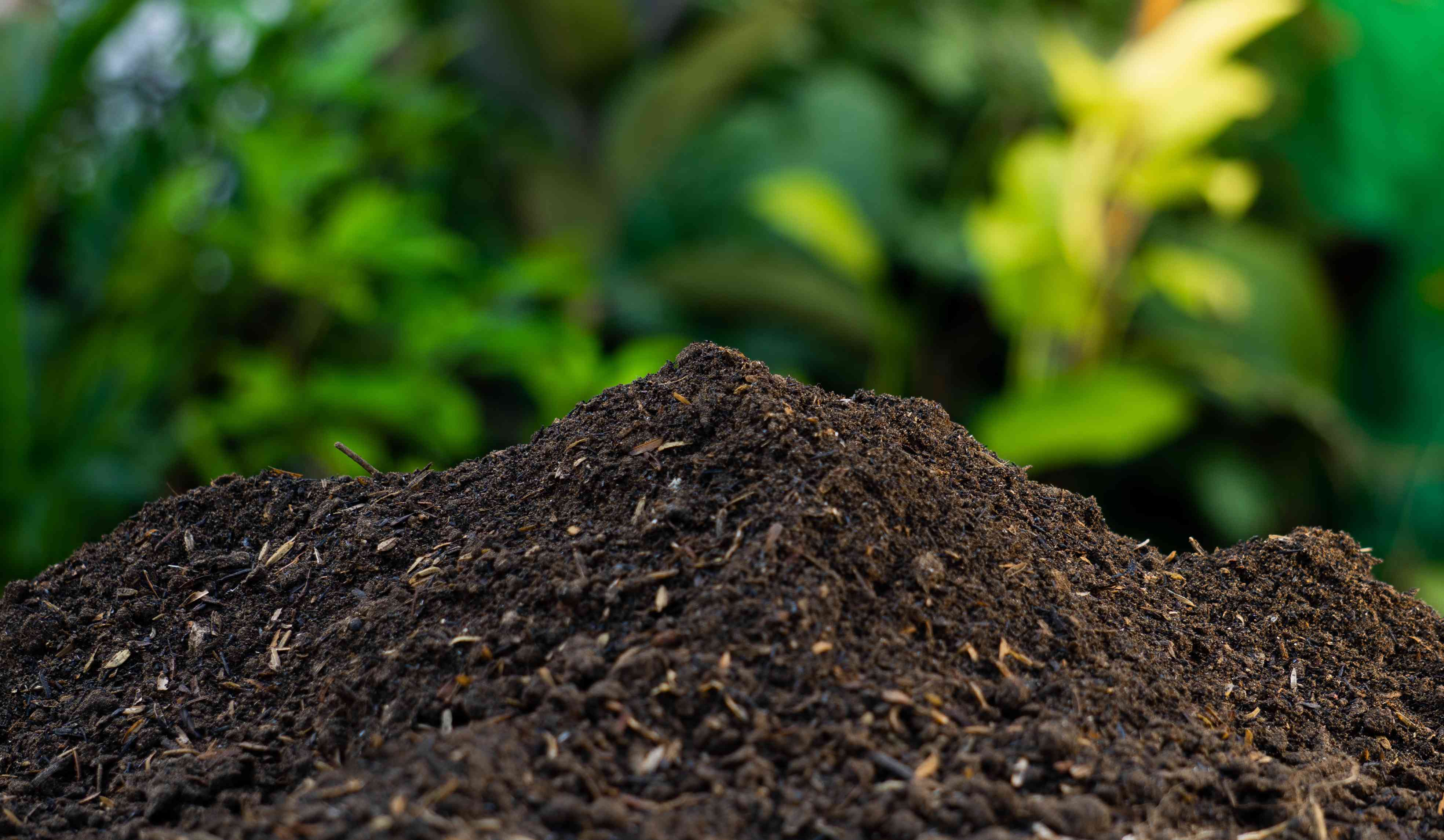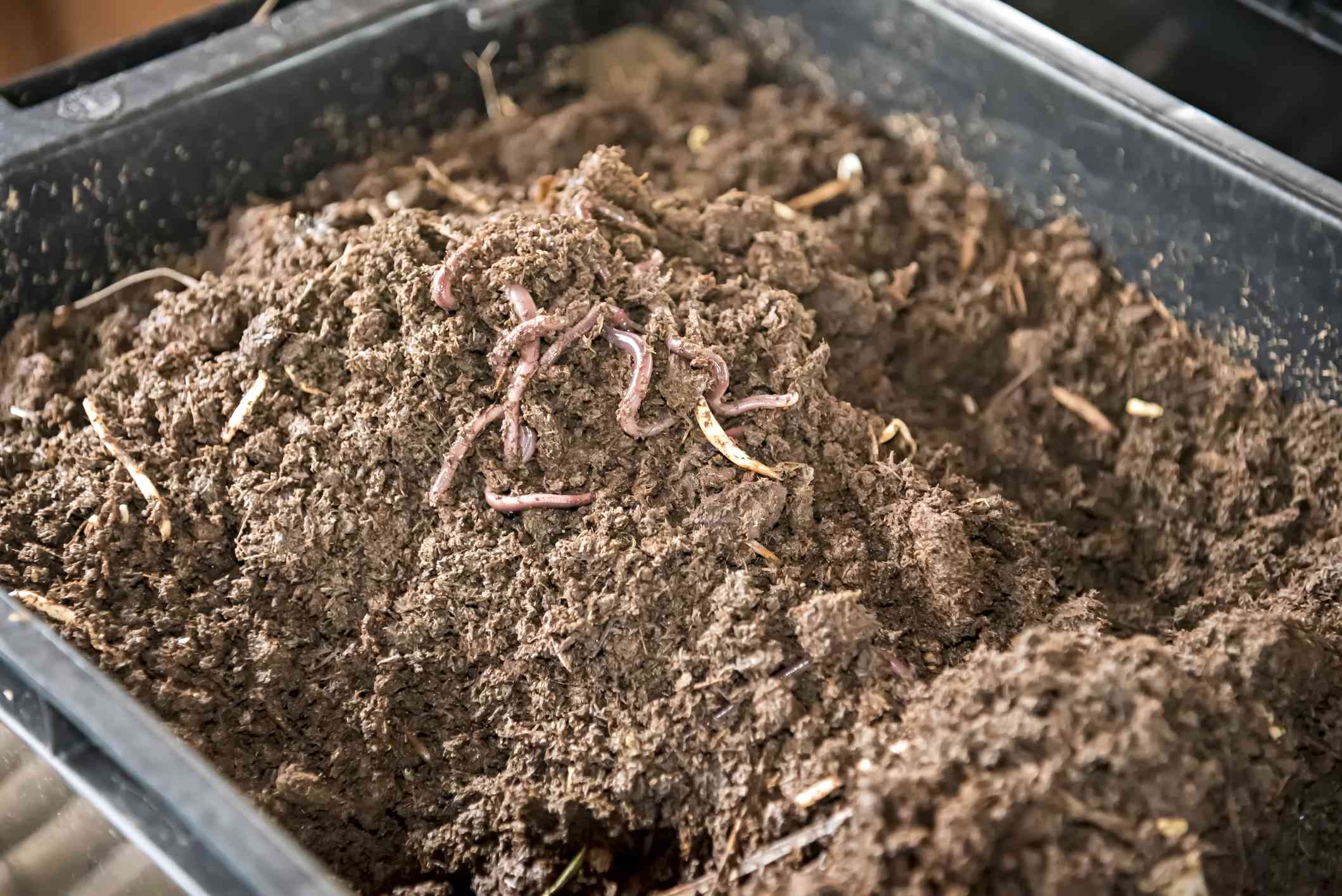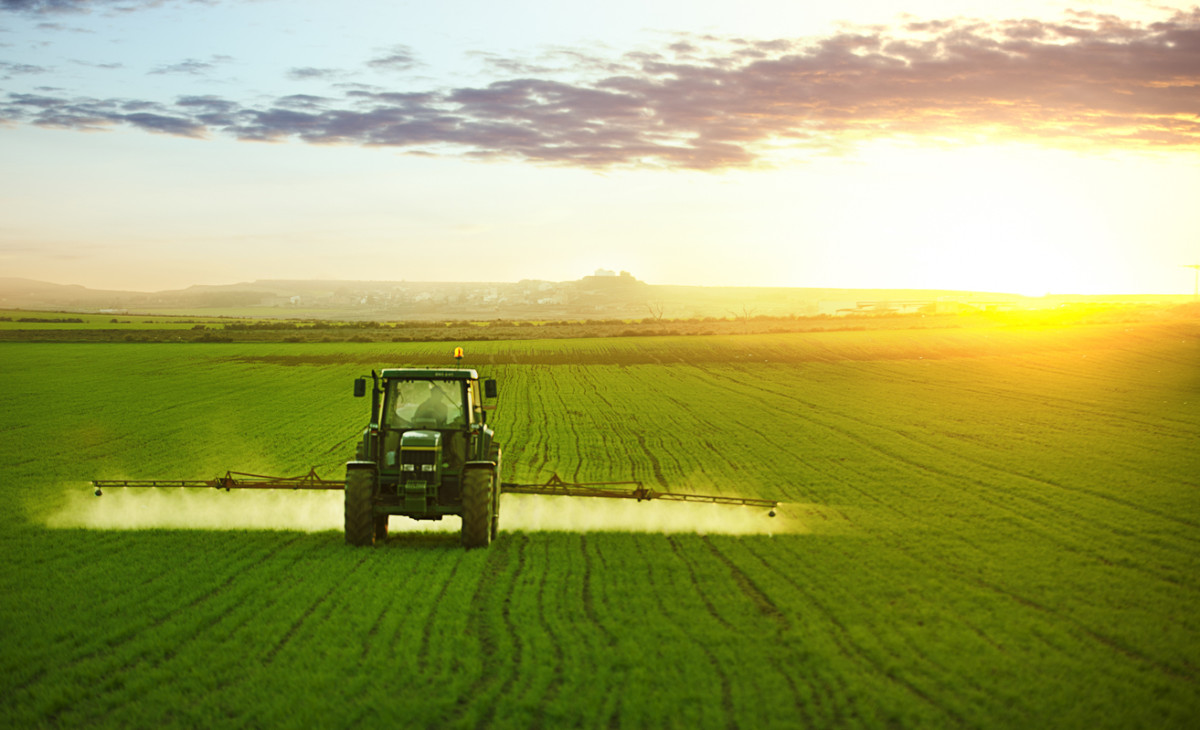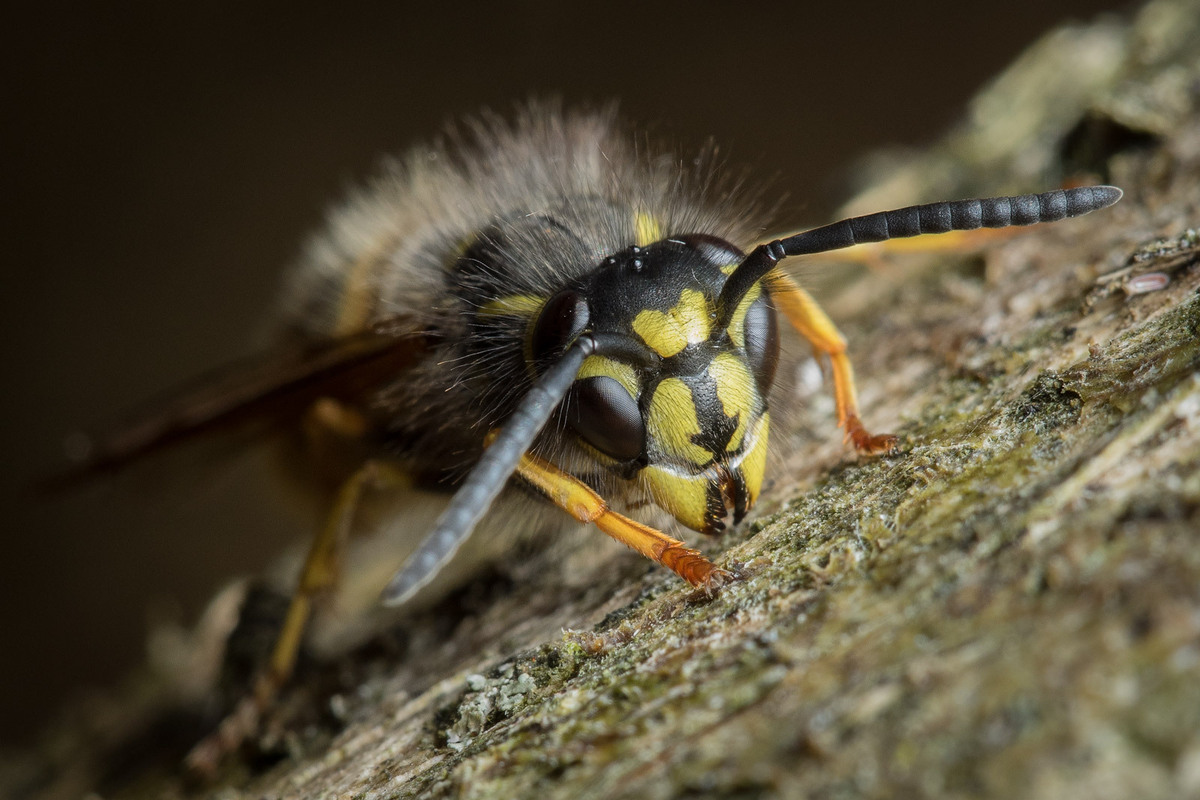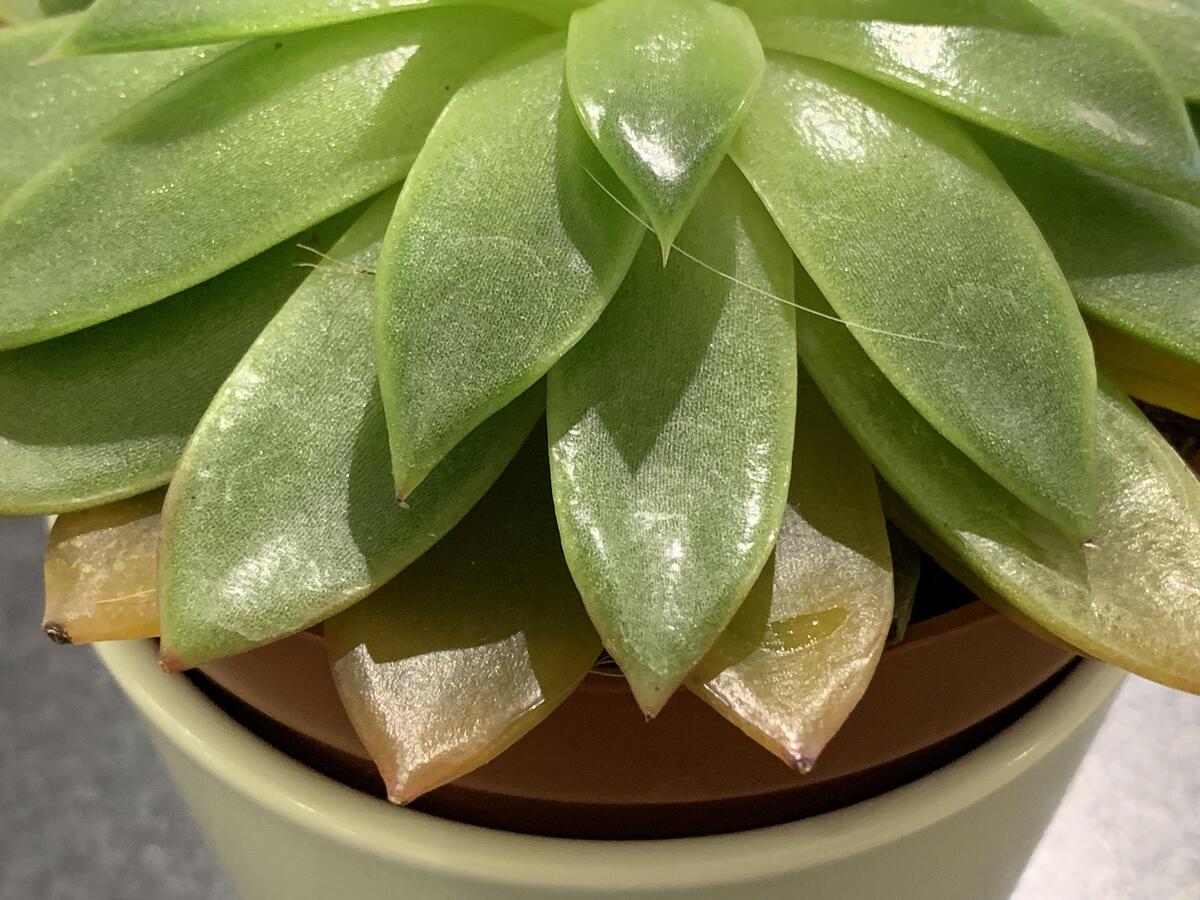Home>Gardening Tips and Tricks>Eco-Friendly Gardening>Why Do People Compost
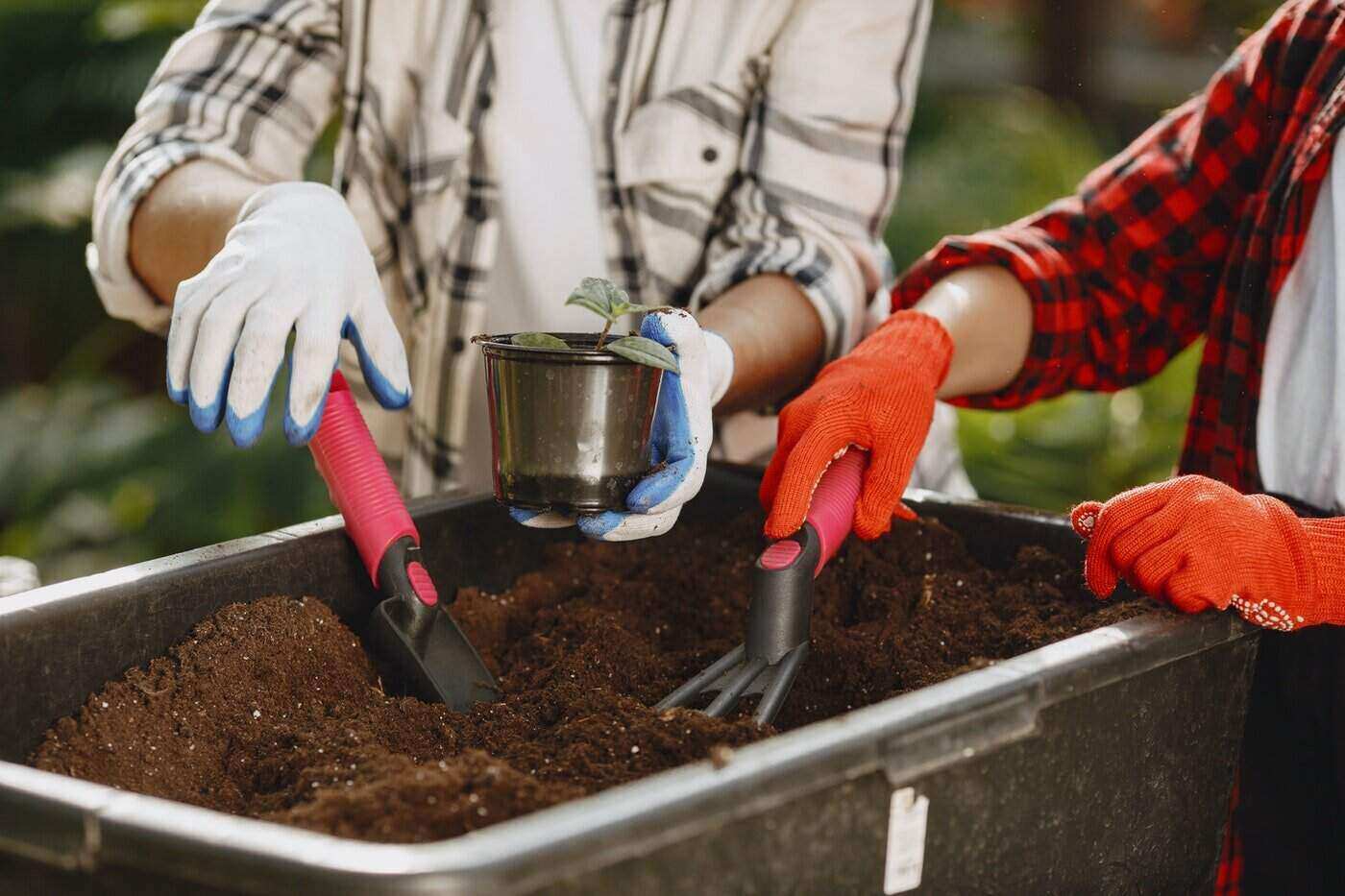

Eco-Friendly Gardening
Why Do People Compost
Modified: January 22, 2024
Discover the benefits of eco-friendly gardening and learn why people choose to compost. Get tips on composting and reducing waste in your garden.
(Many of the links in this article redirect to a specific reviewed product. Your purchase of these products through affiliate links helps to generate commission for Chicagolandgardening.com, at no extra cost. Learn more)
Table of Contents
- Introduction
- Environmental Benefits of Composting
- Reducing Food Waste through Composting
- Composting as a Sustainable Practice
- Nutrient-Rich Soil from Composting
- Composting to Reduce Greenhouse Gas Emissions
- Composting as a Circular Economy Solution
- Community and Economic Benefits of Composting
- How to Start Composting at Home
- Common Misconceptions about Composting
- Conclusion
Introduction
Welcome to the world of eco-friendly gardening! In this article, we will explore the fascinating practice of composting and its numerous benefits for both the environment and our gardens. Composting is an age-old technique that involves decomposing organic matter, such as kitchen scraps and yard waste, to create nutrient-rich soil. It is a fundamental element of sustainable gardening, as it minimizes waste, reduces greenhouse gas emissions, and promotes a healthier ecosystem.
Composting is gaining popularity worldwide as people become more conscious of their impact on the environment. By diverting organic waste from landfills and turning it into valuable fertilizer, we can actively contribute to reducing our carbon footprint and nurturing our plants organically. Additionally, composting is a rewarding way to connect with nature and participate in the global movement towards a greener future.
In this article, we will delve into the various environmental benefits of composting, such as reducing food waste, creating nutrient-rich soil, and minimizing greenhouse gas emissions. We will also explore how composting fits into the concept of a circular economy and discuss the economic and community advantages it brings. Furthermore, we will provide practical tips on how to start composting at home, as well as debunk common misconceptions surrounding this practice.
So, whether you are a seasoned gardener looking to enhance your eco-friendly practices or someone just starting out in the world of gardening, this article is for you. Join us as we explore the wonders of composting and discover how it can transform your garden into a thriving, sustainable oasis.
Environmental Benefits of Composting
Composting plays a vital role in reducing our environmental impact and creating a more sustainable future. By diverting organic waste from landfills and utilizing it to produce nutrient-rich soil, composting offers a wide range of environmental benefits. Let’s explore some of these benefits in detail:
- Reducing Food Waste: Food waste is a significant global issue, with millions of tons being discarded each year. By composting food scraps, we can minimize this waste and prevent it from ending up in landfills where it produces harmful greenhouse gases. Instead, the nutrients in these scraps can be recycled and returned to the earth through composting.
- Creating Nutrient-Rich Soil: Compost is often referred to as “black gold” in gardening because of its exceptional nutrient content. Composting allows for the decomposition of organic matter, which results in the production of rich, high-quality soil. This nutrient-dense soil promotes healthy plant growth and reduces the need for synthetic fertilizers, which can be detrimental to the environment.
- Minimizing Greenhouse Gas Emissions: When organic waste decomposes in landfills, it produces methane gas, a potent greenhouse gas that contributes to climate change. Composting diverts organic waste from landfills, reducing the amount of methane released into the atmosphere. By composting, we can help mitigate the effects of climate change and reduce our carbon footprint.
- Conserving Water: Compost improves soil structure and water retention capacity, reducing the need for excessive watering. By adding compost to the soil, we can conserve water resources by ensuring that plants receive adequate hydration without wasteful runoff.
- Promoting Biodiversity: Composting fosters a healthy ecosystem by supporting beneficial microorganisms, earthworms, and other soil organisms. These organisms break down organic matter, improving soil fertility and creating a thriving habitat for plants and wildlife.
By embracing composting as a gardening practice, we contribute to the preservation of our natural resources, reduce waste, and enhance the overall health of our environment. The benefits reach far beyond our individual gardens, positively impacting the planet as a whole.
Reducing Food Waste through Composting
Food waste is a significant global issue, with millions of tons of edible food ending up in landfills each year. Composting offers a powerful solution to this problem by providing a sustainable way to divert food waste and transform it into valuable fertilizer.
When we throw away food, it not only represents a waste of resources and money but also contributes to environmental degradation. Food waste in landfills generates methane gas, a potent greenhouse gas that is a major contributor to climate change. By composting food scraps instead, we can minimize methane emissions and reduce our carbon footprint.
Composting food waste is a simple process that can be done at home or on a larger scale. It involves collecting fruit and vegetable scraps, coffee grounds, eggshells, and other non-animal food waste and allowing them to decompose naturally. The end result is nutrient-rich compost that can be used to nourish our gardens, lawns, and indoor plants.
One of the major advantages of composting food waste is the ability to close the nutrient cycle. When we compost, we return valuable nutrients back to the soil, mimicking nature’s own process. This not only reduces the need for synthetic fertilizers but also improves soil health and fertility. Compost provides essential nutrients, improves soil structure, and enhances the water-holding capacity of the soil, promoting healthy plant growth.
Furthermore, composting food waste reduces pressure on landfills, which are already overwhelmed with organic waste. By diverting food scraps from the waste stream, we can prolong the lifespan of landfills and reduce the need for costly expansions or the creation of new landfills. Composting also helps to reduce the emission of other harmful substances released from decomposing food waste in landfills, such as ammonia and sulfur compounds.
Reducing food waste through composting is not only an environmental practice but also an opportunity to reconnect with the value of food. By being mindful of the food we consume and properly utilizing leftovers or scraps, we can help combat food waste and make a positive impact on both the environment and our wallets.
So, whether you start composting on a small scale in your backyard or join community composting initiatives, every effort counts in the fight against food waste. By composting our food scraps, we can contribute to a more sustainable and responsible food system while nourishing our gardens with nutrient-rich compost.
Composting as a Sustainable Practice
Composting is not only an effective way to manage organic waste but also a sustainable practice that promotes ecological balance and reduces our reliance on harmful chemicals and synthetic fertilizers. By incorporating composting into our gardening routine, we can contribute to a more sustainable and resilient environment.
One of the key aspects of composting as a sustainable practice is its ability to close the nutrient cycle. When we compost organic waste, we are essentially returning the nutrients back to the soil, mimicking the natural processes of decomposition and nutrient recycling. This reduces our dependence on synthetic fertilizers, which often contain harmful chemicals and contribute to pollution of waterways and soil degradation.
In addition, composting improves soil health and fertility. The organic matter in compost enriches the soil, enhancing its structure and water-holding capacity, which in turn promotes robust plant growth. The increased soil fertility also reduces the need for excessive watering and helps prevent erosion. By using compost in our gardens, we can create a healthier and more sustainable growing environment.
Another significant benefit of composting is its role in carbon sequestration. Organic materials that decompose in landfills release large amounts of methane, a potent greenhouse gas. However, when we compost organic waste instead, we significantly reduce the emission of methane and contribute to mitigating climate change. Compost-amended soils also have the ability to sequester carbon, further offsetting greenhouse gas emissions and enhancing the resilience of the ecosystem.
Composting is a practice that aligns with the principles of the circular economy. By diverting organic waste from landfills and transforming it into compost, we create a closed-loop system, where organic matter is recycled and reused instead of being discarded. This minimizes waste and maximizes resource efficiency, reducing the strain on natural resources and minimizing our ecological footprint.
Furthermore, composting encourages biodiversity and supports the beneficial organisms present in the soil. The microorganisms, earthworms, and other soil organisms that thrive in compost-amended soils contribute to the breakdown of organic matter, nutrient cycling, and overall ecosystem health. This biodiversity helps maintain a balanced and resilient ecosystem, benefiting not only our gardens but also the larger natural environment.
As more individuals and communities embrace composting, we can collectively make a significant impact on creating a more sustainable future. By adopting composting as a sustainable practice, we contribute to healthier soils, reduced greenhouse gas emissions, and a more resource-efficient and ecologically balanced world.
Nutrient-Rich Soil from Composting
Composting is a powerful method that allows us to transform organic waste into nutrient-rich soil, often referred to as “black gold” in gardening. This nutrient-dense soil is a valuable resource for our gardens, offering numerous benefits for plant growth and overall soil health.
When we compost organic matter, such as food scraps, yard waste, and leaves, it undergoes a process of decomposition. Microorganisms, including bacteria, fungi, and insects, break down the organic materials, releasing nutrients and creating a rich humus-like substance known as compost.
Compost is teeming with essential nutrients that are vital for plant growth. It contains a balanced combination of macronutrients, including nitrogen (N), phosphorus (P), and potassium (K), as well as micronutrients such as calcium, magnesium, and iron. These nutrients are released slowly over time, providing a steady supply to nourish plants and support their overall health and productivity.
One of the key benefits of compost is its ability to improve soil structure. Compost, with its organic matter content, helps to break up heavy soils and improve drainage. It also aids in the aggregation of sandy soils, making them more water-retentive. The improved soil structure allows roots to penetrate and access nutrients and water more easily, leading to healthier and more resilient plants.
In addition to enhancing soil structure, compost also improves the water-holding capacity of the soil. The organic matter in compost acts as a sponge, retaining moisture and reducing the need for frequent watering. This is especially beneficial in arid regions or during periods of drought, where water scarcity is a concern. By incorporating compost into our soil, we can conserve water resources and promote more efficient irrigation practices.
Compost also serves as a natural soil amendment that helps to neutralize pH levels. It acts as a buffer, balancing soil acidity or alkalinity, and creating an optimal environment for plant nutrient availability. This is particularly important for certain crops or plants that have specific pH requirements for healthy growth.
Another advantage of using compost is its ability to enhance microbial activity in the soil. Compost provides a habitat for beneficial microorganisms, earthworms, and other soil organisms that contribute to nutrient cycling and decomposition processes. These organisms break down organic matter further, releasing additional nutrients and improving overall soil health.
By incorporating nutrient-rich compost into our gardens, we can minimize the reliance on synthetic fertilizers, reduce the risk of nutrient imbalances, and improve the long-term sustainability of our gardening practices. Compost nourishes plants naturally, ensuring they receive a consistent supply of essential nutrients that promote healthy growth and increased resistance to pests and diseases.
So, whether you are cultivating a vegetable garden, growing ornamental plants, or maintaining a lush lawn, consider harnessing the power of compost to enrich your soil and enhance the vitality of your plants. With compost, you can create a thriving and sustainable growing environment while reducing the need for chemical fertilizers and promoting the overall health of the ecosystem.
Composting to Reduce Greenhouse Gas Emissions
Composting is not only an effective method to manage organic waste but also plays a crucial role in reducing greenhouse gas emissions. By diverting organic waste from landfills and facilitating the natural decomposition of organic materials, composting helps mitigate the production of harmful greenhouse gases, such as methane.
When organic waste, such as food scraps and yard trimmings, ends up in landfills, it undergoes anaerobic decomposition. This process produces methane, a potent greenhouse gas that is significantly more effective at trapping heat in the atmosphere than carbon dioxide. Methane emissions from landfills contribute to global warming and climate change.
By composting organic waste instead, we create an aerobic environment that encourages the growth of beneficial microorganisms that break down the organic matter. This aerobic decomposition process significantly reduces the release of methane gas. In fact, composting can prevent up to 99% of the methane emissions that would have occurred if the same materials were sent to landfills.
In addition to reducing methane emissions, composting also helps sequester carbon dioxide, another greenhouse gas. When organic waste is composted, the resulting compost can be used as a soil amendment. By incorporating this compost into the soil, carbon is stored and sequestered in the form of organic matter. This carbon sequestration helps offset greenhouse gas emissions, contributing to efforts to combat climate change.
Furthermore, composting diverts the need for landfill space, reducing the environmental impact associated with establishing and maintaining landfills. It minimizes the production of other harmful substances that are released during the decomposition of organic waste, such as volatile organic compounds and leachate, which can contaminate soil and water sources.
By effectively reducing greenhouse gas emissions through composting, we can contribute to the global effort to mitigate climate change. Composting is a sustainable waste management practice that not only addresses the immediate issue of organic waste but also helps address the broader challenge of reducing greenhouse gas emissions and creating a more sustainable future.
Whether on an individual or community scale, composting offers a practical and effective solution to reduce the environmental impact associated with organic waste. By embracing composting, we can actively participate in reducing greenhouse gas emissions and work towards a more sustainable and resilient planet.
Composting as a Circular Economy Solution
Composting is not just a way to manage organic waste; it is also a critical component of the circular economy model. The circular economy seeks to minimize waste by maximizing the value and utility of resources through recycling, reusing, and repurposing. Composting aligns perfectly with these principles, as it allows us to close the loop and create a sustainable system for organic waste management.
In a linear economy, the traditional approach to waste management involves a linear “take-make-dispose” model. This model leads to wasteful practices, where valuable resources, such as organic materials, are discarded and end up in landfills. However, in a circular economy, waste is viewed as a potential resource that can be repurposed, recycled, or recovered.
Composting embodies the principles of the circular economy by transforming organic waste into a valuable resource. Instead of sending organic waste to landfills where it breaks down and emits greenhouse gases, composting allows us to divert this waste and turn it into nutrient-rich compost. This compost can then be used to nourish the soil and support plant growth, closing the nutrient cycle.
Through composting, organic waste is recycled and repurposed, reducing the need for synthetic fertilizers and minimizing the extraction of finite resources. By returning nutrients to the soil through compost, we reduce the reliance on external inputs, leading to more sustainable and self-sufficient agricultural and gardening practices.
In the circular economy approach, composting also contributes to reducing waste and conserving resources. By diverting organic waste from landfills, composting helps prolong the lifespan of landfill sites and reduces the demand for new ones. This reduces the pressure on natural habitats and ecosystems that would otherwise be affected by the expansion of landfills.
Furthermore, composting creates opportunities for economic growth and job creation. The process of collecting, processing, and distributing compost can stimulate local economies. Community-based composting initiatives not only reduce transportation-related greenhouse gas emissions but also provide employment and support sustainable local food production.
Composting as a circular economy solution also fosters community engagement and collaboration. It encourages individuals, neighborhoods, and communities to take an active role in waste reduction and resource conservation. Initiatives such as community composting sites and shared composting facilities promote social interaction, knowledge sharing, and a sense of community ownership.
By adopting composting as a circular economy solution, we can transform waste into a valuable resource, reduce environmental impacts, stimulate the economy, and strengthen community ties. Composting provides a tangible example of how the principles of the circular economy can be applied to create a more sustainable and resource-efficient future.
Community and Economic Benefits of Composting
Composting not only brings environmental benefits but also offers numerous advantages for communities and local economies. From reducing waste management costs to creating job opportunities and fostering community engagement, composting has the potential to positively impact both the social and economic aspects of a community.
One of the significant community benefits of composting is the reduction of waste management costs. By diverting organic waste from landfills, communities can reduce the amount of waste that needs to be transported and disposed of in facilities, saving on transportation and landfill expenses. This cost savings can then be reinvested in other community projects or services.
Composting also enhances soil health, leading to improved food production and community gardening initiatives. By incorporating compost into community gardens, urban farms, or public green spaces, communities can have access to locally grown, nutritious food. This not only promotes food security but also builds stronger, healthier communities by providing opportunities for hands-on learning and promoting a sense of connection with the environment.
In addition to food production, composting can generate revenue streams and create job opportunities. The production and distribution of compost can stimulate local economies by establishing businesses related to waste collection, composting facility management, and the sale or distribution of compost products. These ventures can contribute to job creation and support the growth of sustainable, green industries within the community.
Community-based composting initiatives can also foster a sense of collaboration and civic engagement. Neighborhood composting programs, community gardens, or shared composting facilities encourage residents to work together, leading to stronger social bonds and a sense of collective responsibility. Composting workshops or educational programs can empower community members with knowledge and skills to manage organic waste efficiently, promoting a more sustainable and environmentally conscious community.
Moreover, composting can alleviate the burden on municipal waste management systems. By diverting organic waste from landfills, composting reduces the demand for landfill space and extends the lifespan of existing facilities. This can save municipalities money in terms of landfill expansion or the establishment of new disposal sites. The reduction in waste can also lead to fewer environmental impacts associated with landfill operations, such as odor, vermin, and leachate contamination.
Overall, the community and economic benefits of composting are significant. By promoting composting initiatives, communities can reduce waste management costs, create job opportunities, support local food production, and strengthen community ties. Composting not only enhances the environmental sustainability of a community but also contributes to its social and economic resilience.
How to Start Composting at Home
Composting at home is a rewarding and straightforward process that allows you to reduce waste, create nutrient-rich soil, and contribute to a more sustainable lifestyle. Whether you have a large backyard or a small balcony, here are some steps to help you get started with home composting:
- Select a composting method: Choose a composting method that suits your space and lifestyle. The most common options include traditional composting bins, worm composting (vermicomposting), or compost tumblers. Consider factors such as available space, desired composting capacity, and the amount of organic waste generated in your household.
- Set up your composting system: Place your compost bin or container in a convenient location. Ensure it has adequate drainage and proper aeration. If you opt for worm composting, set up a worm bin with appropriate bedding materials and introduce a colony of composting worms.
- Add the right materials: Composting requires a balanced combination of carbon-rich (brown) and nitrogen-rich (green) materials. Brown materials include dry leaves, twigs, and shredded paper, while green materials consist of fruit and vegetable scraps, coffee grounds, and grass clippings. Aim for a ratio of roughly 3 parts brown to 1 part green materials by volume.
- Manage moisture: Keep your compost moist but not soaked. If it’s too dry, add water; if it’s too wet, add dry brown materials to absorb excess moisture. Regularly monitor the moisture levels and adjust as needed to create an ideal environment for decomposition.
- Aerate and mix: Use a pitchfork, shovel, or compost turning tool to regularly turn or mix the compost pile. This helps introduce oxygen into the mix and promotes decomposition. Turning the pile also aids in homogenizing the materials, ensuring even decomposition and reducing unpleasant odors.
- Monitor and adjust: Keep an eye on your compost pile and make adjustments as necessary. Ensure it maintains a temperature between 120-160°F (49-71°C), as this range promotes effective decomposition. If your compost pile becomes smelly or attracts pests, adjust the carbon-to-nitrogen ratio, add more brown materials, or consider covering the pile to deter pests.
- Harvest and use compost: Over time, the organic materials in your compost pile will decompose into dark, crumbly compost. This process can take several months to a year, depending on various factors. When the compost is ready, harvest it by removing any uncomposted materials and using the finished compost to enrich your garden soil, amend potting mixes, or nourish your houseplants.
Remember, successful composting requires patience and a bit of experimentation. It may take some time to find the right balance of materials and master the process, but the rewards are well worth it. As you gain experience, you can increase the scale of your composting efforts and explore more advanced techniques to further optimize your composting system.
By composting at home, you are actively participating in the reduction of waste sent to landfills and creating a valuable resource for your garden. Embrace the process and enjoy the satisfaction of nurturing your plants with the rich, nutrient-filled goodness of homemade compost.
Common Misconceptions about Composting
Composting is a beneficial and eco-friendly practice, but it is not free from misconceptions. Let’s address some common misconceptions about composting to help dispel any doubts and encourage more people to embrace this sustainable practice:
- Composting is complicated: While composting may seem intimidating, it is actually a relatively simple process. With the right balance of brown and green materials, proper moisture, and regular aeration, you can create a thriving compost pile. Start small, follow basic guidelines, and learn from experience.
- Compost smells bad: When done correctly, composting should not produce foul odors. Foul odors are often a result of an imbalanced carbon-to-nitrogen ratio or excessive moisture. Adding more brown materials, turning the compost pile regularly, and providing proper aeration can help address any potential smell issues.
- Composting attracts pests: While it is true that certain pests may be attracted to food scraps, proper composting practices can minimize pest issues. By burying food waste under a layer of brown materials, keeping the compost pile well-mixed, and avoiding placing dairy or meat products in the compost, you can deter pests and ensure a healthy composting environment.
- Composting takes too long: Composting is a natural process that requires time. The length of composting time depends on factors such as the size of the compost pile, the materials used, and environmental conditions. While it can take several months to a year for compost to fully decompose, regular turning and proper composting practices can help accelerate the process.
- You need a large yard to compost: Composting can be done in a variety of spaces, including small balconies or indoor areas. If outdoor space is limited, consider options such as worm composting (vermicomposting) or compost tumblers designed for smaller areas. These methods are compact and suitable for composting in small living spaces.
- All food waste can be composted: While many food scraps can be composted, some items should be avoided. Meat, dairy products, and oily or fatty foods should generally be excluded from compost piles as they can attract pests and slow down the composting process. However, fruits, vegetables, coffee grounds, tea leaves, and eggshells are excellent additions to the compost pile.
- Composting is only for gardeners: Composting is not exclusively for gardeners. Even if you don’t have a garden, composting can still benefit you. The nutrient-rich compost can be donated to community gardens or used as a soil amendment for potted plants or indoor houseplants, improving their health and vitality.
By dispelling these misconceptions and educating ourselves about the true nature of composting, we can empower more individuals to embrace this sustainable practice. Composting can be adapted to various living situations, and with a little knowledge and effort, everyone can contribute to reducing waste, nurturing the environment, and making a positive impact.
Conclusion
Composting is not just a gardening practice; it is a powerful tool for promoting a more sustainable and eco-friendly lifestyle. By diverting organic waste from landfills and embracing the process of decomposition, we can reduce our environmental impact, nurture our gardens, and contribute to a healthier planet.
Throughout this article, we have explored the numerous benefits of composting, including its ability to reduce food waste, create nutrient-rich soil, minimize greenhouse gas emissions, and foster a circular economy. Composting empowers individuals and communities to take an active role in waste reduction, resource conservation, and the cultivation of healthier, more sustainable landscapes.
Starting composting at home is a simple and rewarding process, regardless of the amount of space available. By following basic guidelines and experimenting with the balance of materials, moisture, and aeration, anyone can create their own compost pile or bin. The rich and nutritious compost produced can then be used to nourish plants, sustain local food production, and contribute to greener communities.
However, it is important to address common misconceptions surrounding composting, such as the belief that it is complicated, smelly, or attracts pests. By dispelling these misconceptions, we can encourage more individuals to adopt composting as a beneficial and accessible practice.
Ultimately, composting is more than just a method of waste management. It is an invitation to reconnect with nature, appreciate the value of organic materials, and actively participate in building a sustainable future. Through composting, we can create a positive ripple effect, reducing waste, conserving resources, improving soil health, and fostering a sense of community and environmental stewardship.
So, whether you are a seasoned gardener or someone new to the world of composting, I encourage you to take the first step. Explore the wonders of composting, embrace its benefits, and join the global movement towards a greener and more sustainable world.


